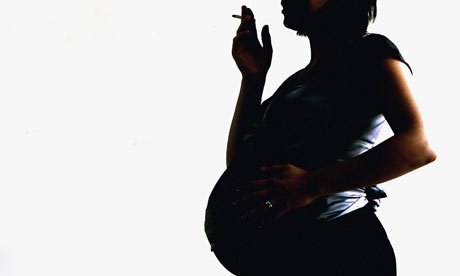Research published today in the Journal of Epidemiology and Community Health, suggests children of mothers who smoke heavily during pregnancy are more likely to become career criminals.
 Scientists at the Harvard School of Public Health in the USsurveyed 3,700 mothers between 1959 and 1966 on their smoking habits during pregnancy. In 2000, criminal record checks were carried out on their children.
Scientists at the Harvard School of Public Health in the USsurveyed 3,700 mothers between 1959 and 1966 on their smoking habits during pregnancy. In 2000, criminal record checks were carried out on their children.
The results showed that those children whose mothers smoked heavily (20 or more cigarettes a day) were 31% more likely to have been arrested as those whose mothers never smoked, and were more likely to be repeat criminal offenders.
Dr Marewa Glover, Director, Centre for Tobacco Control Research, Social & Community Health, School of Population Health, University of Auckland comments:
“This research adds to the overwhelming body of evidence that helps to explains the disproportionately high rates of smoking related illnesses experienced by New Zealand’s indigenous Maori population. New Zealand Maori women have among the highest rates of smoking while pregnant in the world, with 43% still reported to be smoking at first registration with a midwife.
“New Zealand has shamefully high rates of SIDS among Maori babies; poor Maori infant health, high rates of glue ear and respiratory illnesses in Maori children, and early high rates of smoking initiation among Maori children are just a few of the other negative effects of MSP. Maori are also over-represented across a range of negative health and social statistics, including crime statistics. Other countries in the world with currently low smoking prevalence among women, need only look to the devastating health and social status of New Zealand Maori to start to see the far-reaching effects that exposure to smoking in utero can have on a population.”
Our colleagues at the UK Science Media Centre rounded up the following comments from scientists on the paper.
Professor Kate Pickett, Department of Health Sciences, University of York, said:
“This study adds to a substantial body of evidence linking smoking in pregnancy to difficult temperament in infants, behaviour problems in children, and antisocial behaviour in adult offspring. These relationships seem to be robust, and can be seen even after accounting for many differences between women who smoke and those who manage to quit, or never smoke in pregnancy. However, we also know that smoking in pregnancy is related to multiple and complex challenges faced by women in their own lives, in their family circumstances and in the neighbourhoods in which they raise their families. Women need interventions and encouragement to help them quit smoking, but they also need joined-up services and support to help them be the best parents they can.”
Dr Ron Gray, National Perinatal Epidemiology Unit, University of Oxford, said:
“Whether or not mothers’ smoking during pregnancy causes criminal offending in their children – and this well conducted study strongly suggests that it might – there is abundant evidence that it causes stillbirth, low birth weight and infant death, as well as damaging the mothers’ own health: all good reasons to avoid it!”
*Maternal smoking during pregnancy and criminal offending among adult offspring, Angela Paradis et al published in Journal of Epidemiology and Community Health